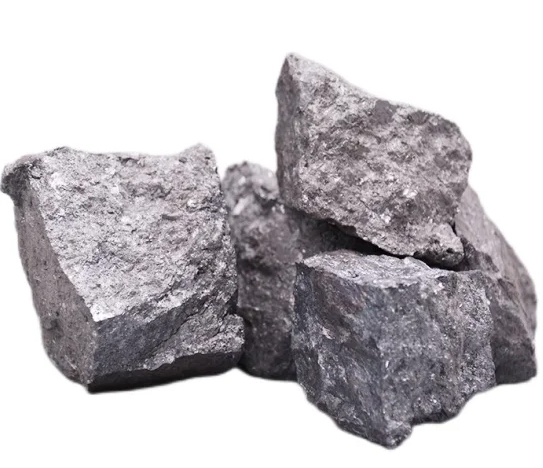
Steelmaking is a complex process that involves transforming raw materials into high-quality steel. Various alloying elements are added to modify the properties of the steel and meet specific requirements. Among these elements, calcium alloy has gained recognition for its significant contributions to steelmaking. In this article, we will explore the role of calcium alloy in steel production and its benefits for the steel industry.
Calcium alloy, typically in the form of calcium silicon (CaSi) or calcium aluminum (CaAl), is used in steelmaking to enhance the properties of the final product. When added to molten steel, calcium alloy undergoes several reactions that positively impact the steel's composition and performance.
One of the key roles of calcium alloy is deoxidation. During the steelmaking process, oxygen can enter the molten steel and form undesirable oxides, which can weaken the material. Calcium alloy, with its strong affinity for oxygen, reacts with the dissolved oxygen, leading to the formation of calcium oxide (CaO). The formed CaO combines with other non-metallic inclusions in the steel, promoting their modification into less harmful forms. This process improves the steel's cleanliness and reduces the presence of harmful impurities.
Calcium alloy also aids in controlling sulfur levels in steel. High sulfur content can negatively impact the steel's mechanical properties and cause brittleness. Calcium alloy reacts with sulfur to form calcium sulfide (CaS), which has a higher melting point than steel. As a result, calcium sulfide floats to the surface and can be easily removed from the molten steel, reducing the sulfur content and improving the steel's quality and performance.
The desulfurization efficiency of calcium alloy is notable. It effectively removes sulfur from the molten steel, even at low temperatures. The strong affinity between calcium and sulfur allows for efficient desulfurization, leading to better steel cleanliness, improved weldability, and enhanced resistance to corrosion.
In addition to its deoxidation and desulfurization properties, calcium alloy contributes to the nodularization and grain refinement of steel. The presence of calcium in the molten steel promotes the formation of spherical graphite (nodules) during the solidification process, resulting in ductile iron or nodular cast iron. This nodularization improves the steel's mechanical properties, including increased tensile strength, toughness, and elongation. Furthermore, the addition of calcium alloy can refine the grain structure of steel, enhancing its overall strength and reducing the risk of brittleness.

Calcium alloy finds extensive application in the production of various steel grades, including construction steel, automotive steel, and stainless steel. The benefits of using calcium alloy in steelmaking are multifold:
Improved Steel Quality: The addition of calcium alloy enhances steel cleanliness by reducing the presence of oxygen, sulfur, and other harmful impurities. This leads to improved mechanical properties and overall steel quality.
Enhanced Weldability: Lowering sulfur levels through calcium alloy desulfurization improves the weldability of steel, making it easier to join and fabricate.
Cost Efficiency: Calcium alloy offers a cost-effective solution for steelmaking. It is readily available and relatively inexpensive compared to other alloying elements, allowing steel manufacturers to achieve desired properties without significant cost implications.
Increased Product Performance: Steel produced with the help of calcium alloy exhibits improved strength, ductility, and resistance to corrosion, meeting the demands of diverse applications.
In conclusion, calcium alloy plays a vital role in steelmaking by contributing to deoxidation, inclusion modification, sulfur control, nodularization, and grain refinement. Its addition enhances steel quality, weldability, and overall performance. Calcium alloy offers significant advantages for the steel industry, enabling the production of high-quality steels for various applications. As steelmaking technologies continue to advance, the utilization of calcium alloy is expected to increase, providing opportunities for further improvements in steel quality and performance.

Write a Message